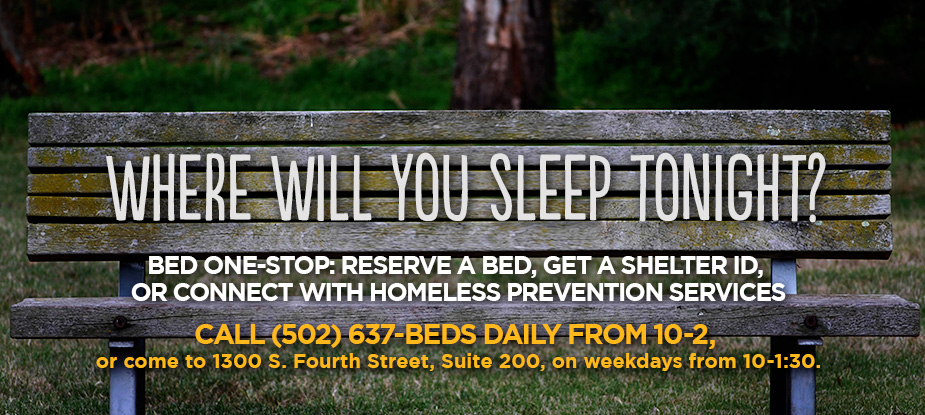Will you have food on the table tonight? Will you have a warm house with a roof over your family tonight? These are questions that we don’t regularly think about, but for some, these questions preoccupy their minds every day. About 30 years ago,the Coalition for the Homeless was formed as a task force to focus on the homelessness in Louisville, KY. This non-profit organization works with 30 other agencies and focuses on three main points: education, advocacy, and coordination.
The Coalition for the Homeless strives to inform the public about the issue of homelessness and how they can help. Natalie Harris, the Executive Director, mentioned “Take A Stand” as one initiative from last fall. About 200 volunteers took to the streets of Louisville with cardboard signs bringing attention to the local homeless situation and what some are doing (or could be doing) to help. Harris also spoke of the “Louisville Street Tips” handbook that includes addresses and phone numbers for services such as emergency shelters, meals, healthcare, jobs, and education. These resources are given to those in need so that they may know of the places and services available to them.
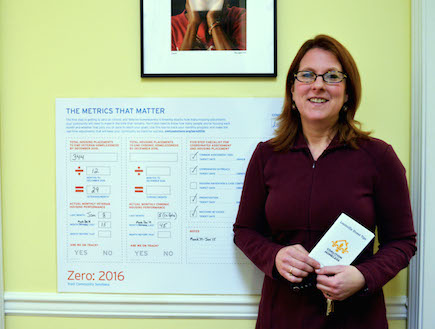
Though the Coalition for the Homeless focuses on Jefferson County, they do work with the state-level umbrella organization: Homeless and Housing Coalition of Kentucky. They have fought for actions in Kentucky’s Legislature such as the “Payday Lending Cap” to enforce laws that cap the interest rates. Harris explained that many Kentuckians take out payday loans only to find themselves in greater debt due to interest rates of up to 400%. This is just one issue that contributes to homelessness in Kentucky.
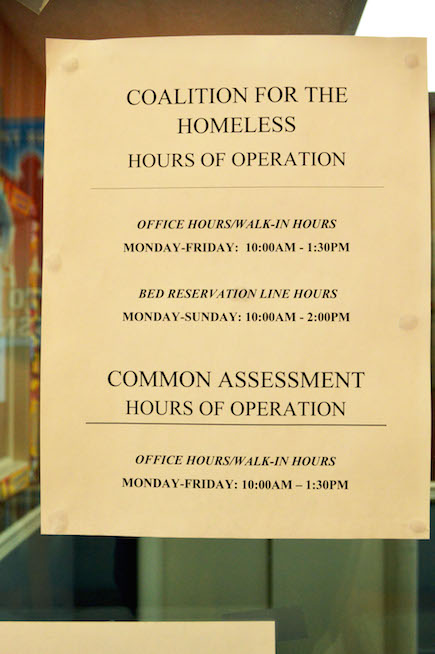
The Coalition for the Homeless’ biggest job is the coordination with their member agencies. One current program is the “Bed One Stop” that provides an organized, direct system for homeless individuals to reserve spots for the night at the shelters and to obtain shelter I.D. cards. Individuals may call from 10a.m.-2p.m. any day of the week or they may walk in between 10a.m.-1:30p.m. Monday-Friday to make a reservation.
With my recent visit to the Coalition for the Homeless, I found just how utilized this system is. On a Friday morning, barely 10 minutes after 10a.m., I observed how certain shelters were already filling up, and individuals were redirected to other available shelters to ensure their bed for the night. These reservations and I.D.s allow individuals to enter an emergency shelter within one minute instead of waiting up to an hour to move through the lines. This program has been widely used, receiving an average of 30 calls per day, and it allows a much more efficient coordination of the homeless agencies within the city.
How is all of this work funded you may ask? A large portion of the funding for the Coalition for the Homeless comes from federal assistance through an annual application to the Department of Housing & Urban Development. This year, the Coalition was awarded a sum of $9,184,304 to be split within their network of organizations, and they are hoping to use this money to accomplish great goals. Their main project this year is the “Rx: Housing Veterans” initiative. The goal is to place all of Louisville’s 344 homeless veterans into housing and off of the streets by December 31st, 2015. Harris mentioned that they have already moved about 50 veterans into housing solutions.
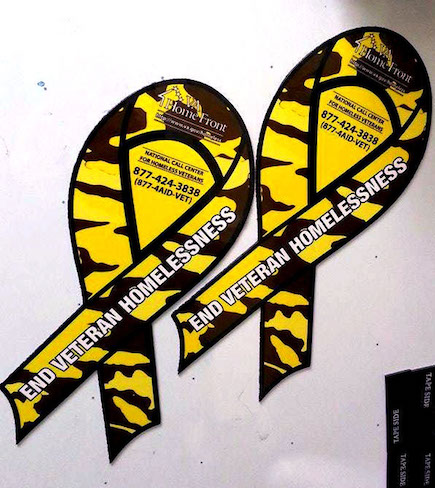
According to Harris about 90% of the homeless population is composed of those in poverty, and those knocked off their feet by unexpected circumstances. She mentioned that in family shelters, about half of the inhabitants are working parents trying to save up money to get back up and bring their families out of the shelter. On the other hand, about 10% of the homeless population is composed of people with mental or physical disabilities and chemical dependencies; these are the chronic homeless. This 10% is the next group of people that the Coalition for the Homeless will try to remove from the streets by 2017.
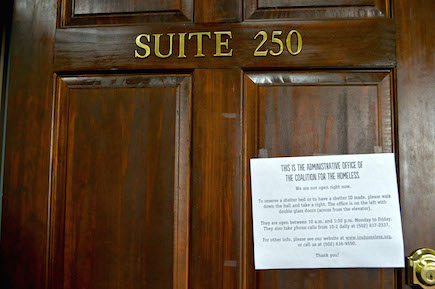
Homelessness may not be a problem that we are directly, individually faced with, but the homeless live in our city, and they need help. I asked Harris what was the most important piece of advice she could give to a homeless individual and to the general public. This is what she said:
To the homeless: A “good first step” would be “to just call and find out what resources are available.”
To the public: “We’re all the same, we’re all trying to do the best we can in the world, and we’re all neighbors.”
The Coalition for the Homeless (in conjunction with their member agencies) are doing their best to resolve this problem within the city of Louisville. They remind us how fortunate we are to have what we have. For more information on the Coalition for the Homeless, follow the link below.
Coalition for the Homeless: http://louhomeless.org/
Photo Courtesy of Irena Tran and http://louhomeless.org/

